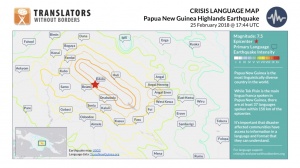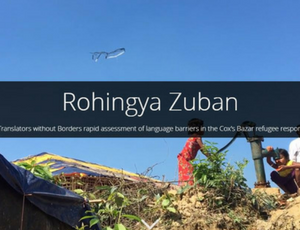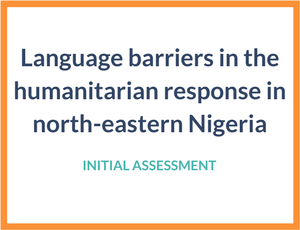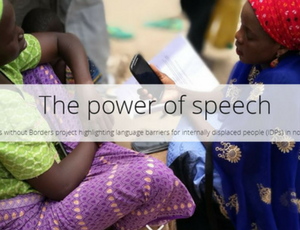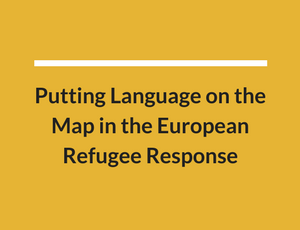On 25 February 2018, a M7.5 earthquake struck the island of Papua New Guinea, displacing over 26,000 residents and leaving 270,000 people in need of assistance. At least 53 people have died as a result of landslides and structural collapse. Women, men, and children who have had to leave their homes speak a variety of […]
Rohingya Zuban
When surveyed in October 2017, a shocking number of Rohingya refugees said that they were unable to communicate with humanitarian responders. The issue of difficult communications in a crisis scenario is intensified by the fact that high numbers of the refugee community are illiterate. This rapid assessment shows how communication is a major barrier in […]
Language barriers in the humanitarian response in northeastern Nigeria
This research report summarizes the key findings of an initial assessment of the language barriers hampering operational agencies’ efforts to communicate with affected people in northeast Nigeria. The report also proposes ways forward to improve communication with communities, and thereby aid effectiveness. Download here Other resources that might interest you: The power of […]
The power of speech
‘The power of speech’ storymap is a Translators without Borders project highlighting language barriers for internally displaced people (IDPs) in northeast Nigeria. Click here for a full-screen version. Other resources that might interest you: Language barriers in the humanitarian response in northeastern Nigeria (language assessment) Language profile of five IDP sites in Maiduguri (research report) […]
Putting language on the map in the European refugee response
A research report by Translators without Borders on the reasons for the lack of language support for refugees and migrants in Greece, and practical solutions to address the issue. This report was produced by Translators without Borders in the framework of the Mixed Migration Platform. Download here Other resources that might interest you: Lost […]
